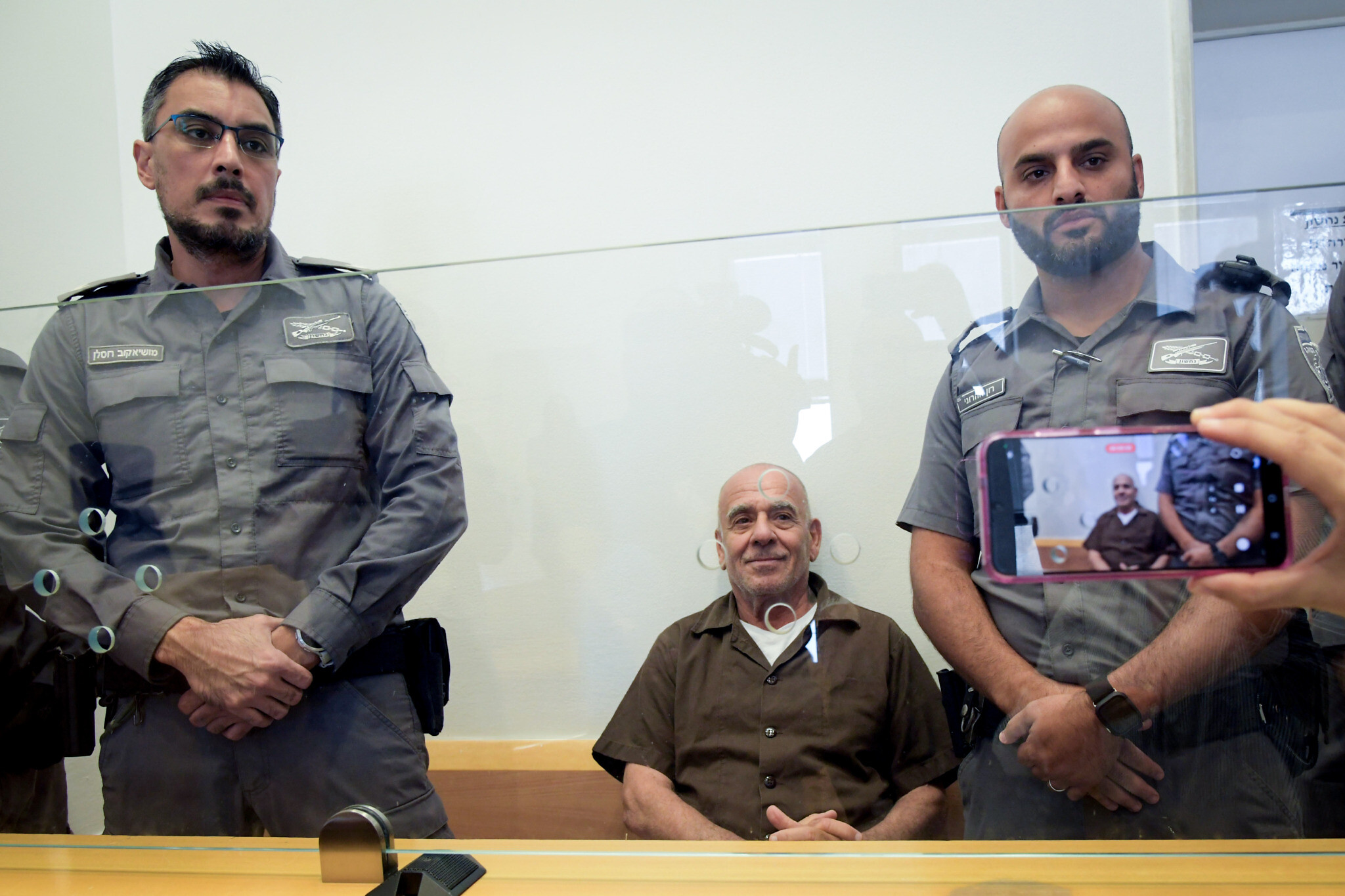Seven Israeli citizens have been arrested for allegedly spying for Iran, carrying out hundreds of espionage missions over two years. This case represents one of the most significant security breaches in Israel, with severe legal and national security ramifications.
In a shocking development, seven Jewish Israeli citizens were arrested last month on suspicion of spying for Iran. According to Israeli prosecutors, these individuals, all of whom emigrated from Azerbaijan, had been involved in espionage activities for nearly two years, conducting approximately 600 missions on behalf of the Iranian government.
The Arrest and Investigation of the Israeli Spying for Iran
This espionage network’s exposure represents a critical security breach, particularly in a time of heightened tensions and ongoing conflict on multiple fronts for Israel.
The individuals arrested included Azis Nisanov, Alexander Sadykov, Vyacheslav Gushchin, Yevgeny Yoffe, and Yigal Nissan. Two of the arrested were minors aged 16 and 17, while one was an Israeli soldier who had previously deserted the military. The charges against them are severe, and authorities have suggested that they could face accusations of “aiding the enemy in wartime,” a charge that carries the possibility of life imprisonment or even the death penalty.
Read : Top Israeli Commander Ahsan Daksa Killed in Gaza Blast
Chief Superintendent Yaron Binyamin, head of the Lahav 433 serious crimes unit of the Israel Police, emphasized the gravity of the case, calling it one of the most severe cases of espionage they have ever investigated.
According to investigators, the individuals allegedly passed critical information about Israel Defense Forces (IDF) bases, military infrastructure, energy facilities, and key security figures to Iranian agents via a Turkish intermediary. The espionage activities reportedly endangered Israel’s national security and have already resulted in attacks on some of the locations that were scouted by the suspects.
Read : Israeli Foreign Minister Threatens Iran, Saying It ‘Deserves to Be Destroyed’
The suspects’ primary motivation for these activities appears to have been financial gain. “They were desperate for tasks, because they were desperate for money,” an Israeli police source explained. The suspects allegedly received hundreds of thousands of dollars in payment, some of which was delivered through cryptocurrency and others via cash transfers from Russian tourists. The investigation also revealed that the suspects used advanced equipment, purchased specifically for espionage purposes, to fulfill their missions.
Espionage Activities and Their Impact on Israeli Security
The scale of the espionage operations carried out by these individuals is alarming. The suspects are accused of scouting multiple high-security locations, including IDF bases such as the Kirya defense headquarters in Tel Aviv, the Nevatim Airbase, and the Ramat David Airbase.
These sites have been targeted in attacks, with the Nevatim base having faced missile strikes by Iran and Ramat David being targeted by Hezbollah.
In addition to IDF bases, the suspects are also accused of gathering intelligence on Israel’s missile defense systems, particularly the Iron Dome, which plays a critical role in defending Israel against missile and rocket attacks. They also reportedly collected information on key Israeli energy infrastructure, such as the Hadera power plant, as well as major ports.

One particularly concerning aspect of the case involves the surveillance of a senior Israeli security figure and his family. The suspects allegedly photographed the individual’s home and monitored his children’s movements, raising concerns about a potential assassination plot.
Authorities have not publicly identified the figure, but investigators believe that the suspects were planning to pass on this information to Iranian agents as part of a larger scheme to target high-ranking Israeli officials.
The suspects’ contacts included two Iranian agents who went by the aliases “Alhan” and “Orhan.” The network’s communications with these Iranian agents were facilitated by a Turkish intermediary known as “Alkhasan.”
Nisanov, the alleged ringleader, was initially recruited in Azerbaijan and is believed to have been the one to establish contact with the Iranian intelligence operatives. He then recruited the six other suspects, some of whom were his relatives, to assist in carrying out espionage tasks.
Authorities were able to gather substantial evidence against the suspects, including photos, videos, and maps of IDF bases and strategic sites in Israel. The network’s espionage activities have already caused significant damage to Israel’s security, according to officials.
The Golani training base, which was scouted by the suspects, was hit in a drone attack earlier this month. Similarly, the precise location of an Air Force observation balloon in the Galilee, which the suspects had photographed, was hit by a projectile just one month after the photos were passed on to their Iranian handlers.

The Shin Bet, Israel’s internal security service, has been instrumental in uncovering this network. Authorities conducted undercover operations, during which they recorded conversations between members of the network discussing their missions and their anticipation of receiving further tasks. Upon their arrest on September 19, the larger scope of the espionage network was revealed, leading to the detention of all seven suspects.
Espionage, Treason, and Legal Consequences
The arrests of these seven individuals represent just one in a string of recent Iranian espionage attempts in Israel. Over the past year, Israeli security agencies have uncovered multiple Iranian plots, often involving the recruitment of Israeli citizens through online means.
Tehran has been actively seeking intelligence on high-profile Israeli figures and critical infrastructure, with a particular focus on using Israeli citizens as intermediaries to carry out attacks or gather sensitive information.
In September, a man from Ashkelon was arrested for allegedly being smuggled into Iran twice and receiving payment to carry out missions for Iranian intelligence. His tasks reportedly included an assassination plot targeting senior Israeli officials, including the prime minister, defense minister, or the head of the Shin Bet.
Similarly, in October, a man and his partner from Ramat Gan were arrested for acts of sabotage and vandalism on behalf of an Iranian agent. Another case in October involved a central Israel resident who allegedly acquired a weapon with the intention of assassinating an Israeli scientist, under the instructions of an Iranian agent.
These incidents underscore the growing threat posed by Iranian espionage efforts and their willingness to exploit vulnerabilities within Israeli society. The Shin Bet and other Israeli security agencies have intensified their efforts to thwart such attempts, but the recent arrests highlight the ongoing challenges Israel faces in defending against foreign intelligence activities.
The Israeli government has responded to these threats with calls for harsher punishments for individuals convicted of espionage. Culture and Sports Minister Miki Zohar, after the news of the arrests broke, called for the implementation of the death penalty for those convicted of treason during times of war.

“The phenomenon of traitors to the country harming Israel’s security for the sake of money while we are fighting for our future in an existential war demands the harshest measures,” Zohar stated. He emphasized that the death penalty should be applied as a deterrent to prevent further cases of espionage and treason.
Israel’s penal code already allows for capital punishment in cases of treason, although it has been applied only in exceedingly rare circumstances. Nazi war criminal Adolf Eichmann, executed in 1962, is one of only two people who have been put to death by the state since its founding in 1948.
If the suspects in this espionage case are convicted, they could face life imprisonment or, in extreme cases, the death penalty, depending on the severity of the charges and the damage caused to Israel’s national security.
As Israel continues to navigate its complex security landscape, the exposure of this espionage network serves as a stark reminder of the threats posed by foreign intelligence operations. The nation’s defense and intelligence agencies will undoubtedly remain vigilant in their efforts to protect against future attacks and espionage attempts, particularly as Israel faces ongoing conflicts and geopolitical tensions.

